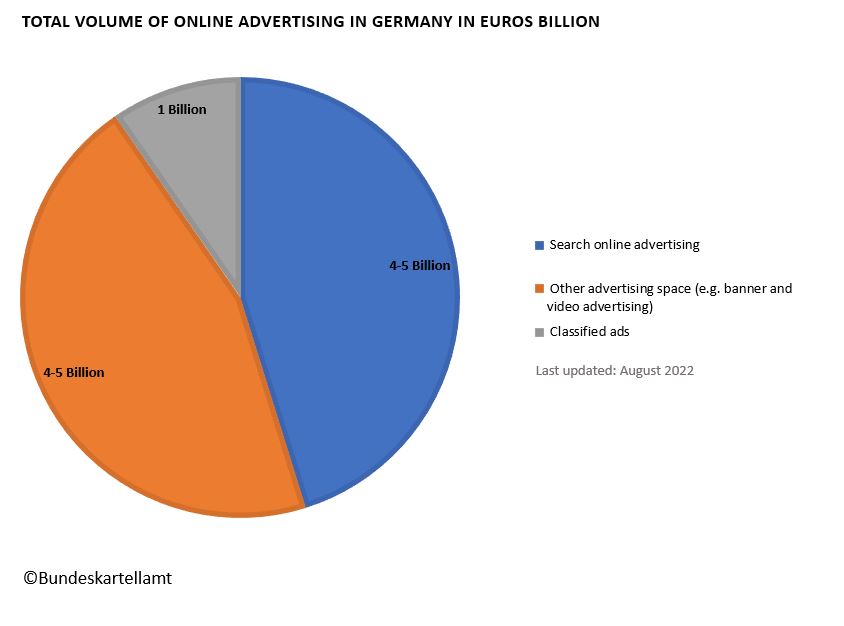Sector inquiry into online advertising
Starting out with simple advertising banners in the early nineties, online advertising has grown into an industry worth billions, generating a turnover of 10 to 11 billion euros in Germany alone. It is not least this form of advertising which co-finances a large number of media offerings and services beyond those provided by large digital companies. Online advertising is not a uniform product. A distinction is made between ads which are displayed in response to keywords entered into a search engine (search online advertising) and other advertising space, such as advertising banners of any kind or video advertising (non-search online advertising).
The Bundeskartellamt has conducted a sector inquiry into non-search online advertising. The results of the inquiry were published (in German) in a final report in 2023.

AdTech
AdTech is the technical foundation of non-search online advertising and refers to the technical services operating in the background which make the highly automated trading in advertising space possible in the first place. At the core of this is a network of various services for both buyers and sellers, grouped around virtual marketplaces for advertising space (ad exchanges). In its entirety, this network is also referred to as programmatic advertising (PA).
The black box of online advertising
The system of non-search online advertising is described by many market participants as a “black box”. Many of the parameters that are relevant to market success are unknown to them and they do not know exactly how the system works. The Bundeskartellamt’s inquiry therefore also examined what consequences this could have in terms of competition and how such consequences could be dealt with.
Positions of power
Google has a strong market position in programmatic advertising at almost every stage of the value chain. Google controls important parts of the software infrastructure on the user side, such as the Chrome browser and the Android mobile operating system, which ultimately also determine the technical options available for realising non-search online advertising. Combined with the finding that it is difficult for outside observers to see how the system actually works, this gives Google considerable power to set the rules.



